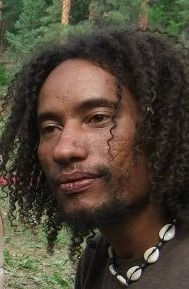Lucor's Quick & Dirty Guide to Clean & Ethical Work
- Lucor Jordan

- Feb 5, 2021
- 3 min read
The quick and dirty of clean and ethical fieldwork
Here are a few rules that my mentors in the field taught me about being an applied anthropologist:
1. Always get consent.
Free and prior informed consent is not just a formality for IRB compliance, it is a fundamental part of what anthropology is and must be. You must meaningfully communicate risks, possible benefits, and outside interests to potential participants. It’s our responsibility to the people who take time and take risks in order to allow us into their communities and lives; it is also the most basic responsibility that anthropologists carry for the discipline.
2. Read your contract carefully.
Understand who is hiring you, whom you are working for, and what you are agreeing to do. Many times, the people whom you are working for—and whom you are contractually obligated to— are not the same ones who will be impacted by your activities and outputs. You may feel like you are working for a local community, but who has control of your research? While you may come to what might appear to be a clear conclusion, you can’t know for certain what your employers or other third parties will do with your work.
3. If you do not do anything else, do no harm.
Whatever does or doesn’t happen as a result of your time working on a project, long after you pack up and go home or move on to the next site, the people in the community have to live with the consequences of what you do, what you say, and what you write.
4. Don’t reinvent the wheel. The reason that an applied anthropologist is able to spend weeks instead of years in a community and still provide an effective summary of the “ground truthing” that can inform program design, implementation, or impact assessment is that they are able to draw upon tens of thousands of in-depth, carefully written ethnographies. You don’t take them as untested truth, but these sources provide deeper context to apply to your field experiences and help you build working hypotheses which you can then interrogate.
5. Change can be a zero-sum-game.
Change carries consequences. In many cases the “service” that an applied anthropologist sells is a practical expertise in learning to understand culture. and how individuals inform—and experience—culture change. Because of the anthropologist’s awareness of culture, they are able to demonstrate more clearly what seemingly small changes can mean for a community. Change, in most cases, can appear as a zero-sum-game to members of the status quo. Whether the change is in irrigation, healthcare, childhood education, or economic development, change can take power, privilege, prestige, authority, or opportunity for livelihood away from those who have it now, and give it to… whom?
Even changes that seem purely helpful or involve incorporating labor saving innovation can have unforeseen consequences. Drawing from my own life, growing up both cooking and shopping took huge amounts of time. Shopping because of how far we sometimes had to go for groceries on foot and cooking because we cooked from scratch. Saving time in the kitchen with ready made food or flour that didn’t have to be milled in a hand mill would have taken away a valuable time learning life lessons and hearing stories from my mother. Years later, living in a house in the country without potable water, traveling to the city to fill up 30 gallons at a time and often making an over-night trip visiting friends and family was the high point of my week. I would have liked potable water at home but having it would have dramatically changed the social networks that were built and maintained since the expense of regular trips to the city wouldn’t have been justifiable.

Lucor Jordan (he/him)
Cultural Anthropologist and Director of Operations at Slightly Problematic
Lucor Jordan is an applied cultural anthropologist who brings a background in environmental anthropology, collaborative research, organizational impact assessment, asset-based community development, building cooperative capacity, and culinary anthropology. Applied anthropology at its heart carries a commitment to relevant and ethical work that bridges engaged scholarship with pressing social issues, and this is particularly aligned with the mission of Slightly Problematic. It is with humility and excitement that he joins this inspired community of practice.









Comments